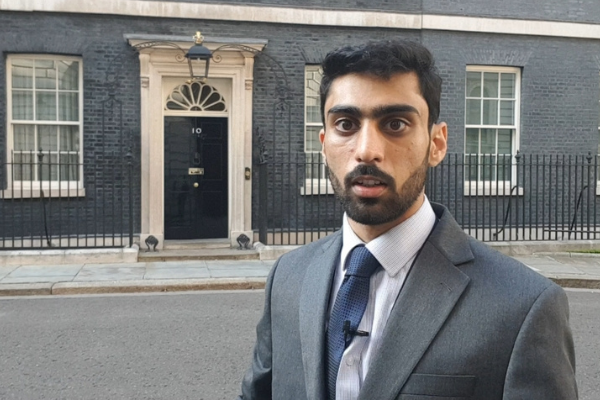Freelance writer Gopesh Pathak explains the unique challenges faced by Indian freelancers.
Being an Indian freelancer can be a pain Indiarse.
That joke doesn’t really work, does it?
Never mind. It’s actually quite fitting because, as a freelancer, in the eyes of my family, friends and relatives, neither do I.
On the face of it, the problems you face when you freelance as an Indian are no different to the problems you face as a freelancer full stop. The financial difficulties, instability and general battle against expectations are there for all freelancers – Indian or not. But there is a bit of a difference in the extent to which these problems can become barriers.
Every few months or so, owing to the frankly ridiculous number of festivals and celebrations that exist in the Indian tradition, I find myself at a densely-packed event full of Brothers and Sisters, Grandads and Grandmas, and Aunties and Uncles (catch-all titles not pertaining to biology but used to signify respect). There will inevitably be a moment where I end up having the following exchange.
“So, what do you do?”
“I’m a writer.”
“Yeah? That’s great. But what do you do? … For a living …?”
“Erm … I write?”
At this stage, the person asking usually looks at me with the all the curiosity of a toddler at the zoo.
“Oh?” (This is pronounced in a way that leaves it hanging in the air and somehow taking on two syllables.) “Who do you write for? The BBC?”
“No.”
“Daily Mail? The Guardian?
“N-“
“Who then? The Sun?”
“I’m a freelancer.”
My answer is so disconcerting that I may as well have said “I’m a professional biscuit-eater and TV watcher.” They quickly move on.
Gradually, after four or five consecutive meetings, the conversation will end up going one of two ways: “Have you managed to get a job yet?” or, worse still, with the single biggest contributor to alcoholism amongst freelancers: “You know what you should write about …”
The worst thing about freelancing in the media is that you end up working in an industry in which everybody considers themselves to be an expert. The unsolicited advice you receive is ridiculous. If I had a penny for every time someone told me what I should write about, I’d never have to write anything ever again. Well, except the cheques offering large sums of money to these people so that they never give advice ever again.
You would never get that with any other job, would you? People wouldn’t go up to a doctor and say “ERE, YOU KNOW WHAT THE CURE FOR CANCER REALLY IS? WELL LET ME TELL YOU…”
Whereas unsolicited advice in general is something you’re able to move on from fairly quickly with the right combinations of nods or corrections, in an Indian social setting, the prominence of reputation and respect for elders means that challenging their woefully inaccurate understandings of the media is difficult. Correcting or asking where they’ve got their ideas from is an insult akin to defecating on their carpet. And so you just listen.

Such expectations and interactions are not a perfectly accurate representation of every Indian household. It’s not even a perfectly accurate representation of my Indian household – my parents have been nothing but supportive of my decisions and I’ve always been given the freedom to study what I want and figure out my life’s path the way I’ve wanted.
In fact, in stark contrast to the stereotype of pushy Indian parents rigidly sticking to a strict regime of academic (science and maths) excellence, my parents let me do whatever I wanted – hence the bad grades, multiple exclusions and the tortuous writing style you’re currently being subjected to. But the Indian definition of family involves hundreds of people all with a forensic level of interest in your life both out of a sense of love and sussing out the competition.
In all seriousness, I think one of the reasons a lot of Indians might feel tentative about freelancing is because many of us have seen how much our families have struggled in order to make a life here. Most of us will have a direct account of someone taking on terrible and precarious work they hated doing just to get by and support their family. This is the polar opposite of what freelancing is geared towards: doing work you like on your terms.
Naturally, then, there’s a lot of guilt attached to pursuing a career that isn’t instantly secure or stable; it feels selfish to moan about how nobody is paying you for your opinions to someone who had to battle for terrible work and just to be treated like an equal human being. It feels like even more of a dick move when you spent your childhood oblivious to that struggle, asking for the latest trainers and football shirts.
There are few greater incentives to find ‘a proper job’ than thinking about all the sacrifices my parents have made to make sure I was never left wanting anything and how much it must hurt them when they’re cornered into explaining my career.
But then, you think about why they toiled away doing work they didn’t want to, and the python around your neck suddenly relaxes its grip. They did it so that I wouldn’t have to. Maybe, in time, future Indian freelancers won’t have it so hard either.






